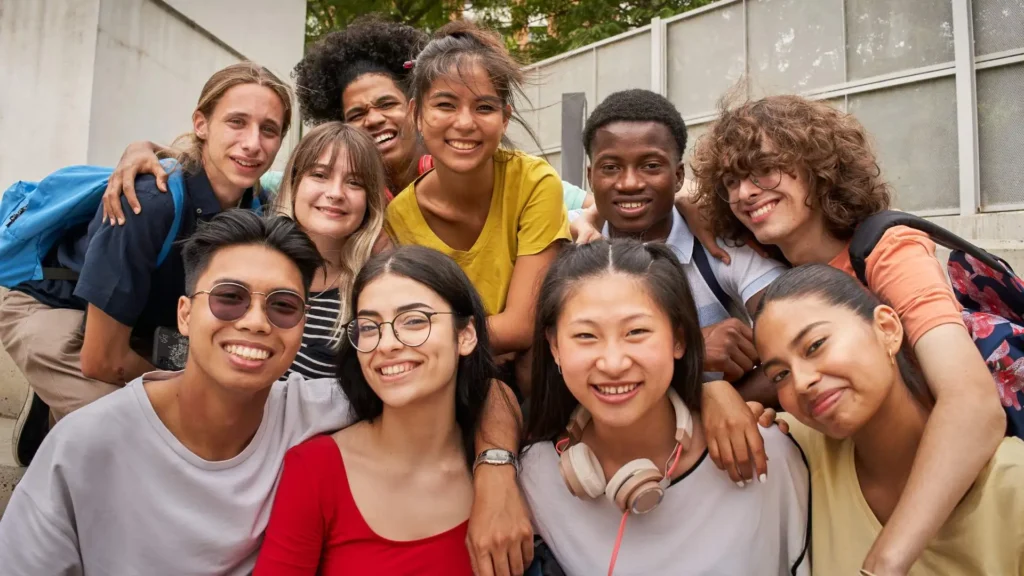Have you ever felt nervous before a job interview? Have you wished for a way to practice your answers? You’re not alone. Many students and job seekers find interviews tough, especially when they’re uncertain about their responses. That is where JobsGPT in the Blitz app can help.
JobsGPT is an AI-powered tool built to help students to get ready for an interview. Whether it’s for a part-time gig, an internship, or your first big job, JobsGPT lets you try out and get tips to do well. It sets up mock interviews based on real jobs, checks your replies, and tracks your growth over time.
If you want to feel more confident, stay prepared, and improve with every session, JobsGPT is ready to support you. Let’s see how to use JobsGPT to track and improve your interview skills and leave a strong mark every chance.
Interview Preparation Tools
JobsGPT provides helpful tools that make interview preparation simple and effective. It enables you to prepare using mock interviews related to the job you are applying for. AI picks the questions that fit your skills, past work, and work area you choose. This helps the practice seem more real for your professional objectives.
Key features are:
- Interactive mock interviews, including questions based on your skills.
- Questions for all levels, from new to old hands.
- Voice recording so you can hear your replies and get better.
- A clear interface that helps you stay sharp during attempts.
- Try in a calm spot with no time pressure..
You can also record and go over your answers. This lets you hear how you sound and gives you a chance to get better before your next try or real interview.
Automated Feedback and Scoring
After every mock interview, you are given feedback on your performance. The system evaluates your responses for clarity, relevance, and confidence. It then scores your responses and gives you tips on how to improve.
JobsGPT helps you understand what you did well and what you need to improve. Some areas that are reviewed include:
- How clearly you answer the question.
- Whether your answer stays on topic.
- The strength of the examples you use.
- The tone and sureness of your voice.
When you get your feedback, act fast. Try your answers again, work on weak spots, and keep trying until your scores go up. This way, you learn quickly and do better in real interviews.
Customizing Interview Sessions Based on Job Type
Each job requires a different strategy while conducting the interview. Some professions are more technical, and some require communication, creativity, or customer service skills. JobsGPT helps you prepare according to the type of job you are looking for.
Whether it’s for a store job, a tech internship, or a fun job, the system changes to have the right questions. This way, your time is used to get ready for the interviews that are most relevant to your objectives. Here’s How to Use JobsGPT for Short-Term Project Opportunities.
Here are ways to personalize your interview sessions:
- Selecting a job type such as education, healthcare, technology, or creative arts assists in making your interview sessions more relevant to your future job.
- Choosing your present experience level guarantees that the questions suit your level, whether you are a beginner or an expert.
- Picking questions for the job lets you try what real bosses may ask.
- Practicing with real questions from companies helps you get ready for the interview you may face.
- Changing the level from easy to hard lets you push yourself and grow strong skills as you move up.
Customizing your sessions helps you to better get ready for what actual employers expect. JobsGPT makes it easier to stay focused and get ready with confidence.
Progress Over Time
JobsGPT does more than just give feedback. It also tracks your progress over time. This lets you see how often you try, how your scores shift, and where you get better.
Here are some key features that assist in monitoring your progress:
- A chart shows how your scores shift over time, so you can see better results in every attempt you complete.
- You can write notes after each try to remember what went well and what to change next time.
- A calendar view shows how often you tried each week and where you can try more if needed.
- JobsGPT shows your best skills and also spots areas that need more focus to help you aim better.
- Give suggestions after each try to help you pick what to try next, so you keep moving up with your growth.
With these, you can enable a solid path to interview success. Each try becomes a step in your path to becoming a better and more confident job seeker.
Integration with Application History
JobsGPT can also connect your interview practice with your actual job applications. When you apply for a job through the Blitz app, JobsGPT can suggest interview questions based on that position. It can also track which jobs you applied for and whether you practiced for interviews for them.
Benefits of this integration include:
- You can practice interview questions based on the actual job listings you have applied to through the Blitz app.
- Interview scores can be matched with your job results to see what prep is best for different jobs.
- After applying for a job, JobsGPT will send reminders for you to begin or resume interview practice sessions.
- By looking back at past answers and tips, you can learn from past attempts and get better for the next interview.
With these, you can build a clear roadmap to interview success. Each practice is a step to being better and more sure of yourself as a job seeker.
Scheduling Daily or Weekly Interview Practice
Being regular is key to any skill. JobsGPT helps you create a regular schedule for interview practice. You can set notes to practice each day or week, as you need and can.
Tips to stay steady with practice are:
- Pick a set time each day and practice for ten to fifteen minutes to build sharp and steady growth.
- Before beginning a fresh one, review past sessions to remind yourself of feedback and prevent repeating mistakes.
- Mark your sessions on a calendar so you can follow your progress and keep a note of your practice frequency.
- Use short breaks in the day to do one or two interview sessions, not long practice when short on time.
By creating a consistent schedule, you train your mind and voice to respond better in interviews. JobsGPT supports this routine, so you always feel prepared and ready to succeed.
Read: How JobsGPT Uses AI to Match You with High-Paying Roles
Tips to Improve Your Interview Performance with JobsGPT
Enhancing interview skills requires time and constant practice. JobsGPT is created to assist you in growing step by step. Through easy tips, you can become more confident, express yourself better, and provide stronger responses in interviews. These tips will guide you on how to use JobsGPT to your best advantage to prepare for the jobs you desire.
Practice for the Right Role
Use JobsGPT to practice questions that are similar to the job you are applying for. It helps you know what to anticipate and prepare more effective answers. Targeted practice produces better outcomes than usual practice sessions.
Review Feedback and Try Again
After each mock interview, check your AI feedback carefully. Use the advice to improve your answers. Record your answers again and work toward a higher score with each session to track your growth.
Write Down Common Mistakes
Maintain a small notebook or file for writing down frequent mistakes. Look at these notes prior to every practice. This prevents you from repeating the same mistake and makes you more conscious of your interview habits.
Answer Behavioral Questions Often
JobsGPT includes many common interview questions that begin with phrases like “Tell me about a time.” Practice them often to become ready for actual interview scenarios in which exact examples are required.
Focus on Tone and Voice
Answer slowly and clearly. Record your tone through JobsGPT’s voice recording feature. Make sure your voice sounds sure and bright to leave a good mark on the interviewer.
Check Progress Regularly
JobsGPT shows your scores and progress after each practice. Look at these results often to see where you are doing well and where you need more work. This keeps you pushed to do better.
Repeat Practice Before Real Interviews
If you have a job interview soon, use JobsGPT to do one or two practice runs the day before. This helps you stay cool, recall your main points, and feel fully set when the interview starts.
By using these simple tips with JobsGPT, you can get better at interviews. With steady practice and careful review, your answers will improve, and you will feel more sure of yourself. JobsGPT is here to guide you on your path to doing well.
Check this out: How to Use JobsGPT for Social Media and Content Jobs
Conclusion: Use JobsGPT to Track and Improve Your Interview Skills
Mastering interview skills takes time, but with the right help, it gets much easier. JobsGPT gives you the tools you need to practice real questions, get useful tips, and track your growth over time. Whether you are new to interviews or want to build more confidence, JobsGPT helps you stay set and focused.
With regular use, you will learn how to answer questions, stay on point, and show yourself with sureness. Every session helps you improve and brings you closer to success.
If you want to feel ready for interviews and increase your chances of getting hired, it’s time to start. Start practicing with JobsGPT and take the next step toward your future. Your next job opportunity may be closer than you think. Download the Blitz app here.





